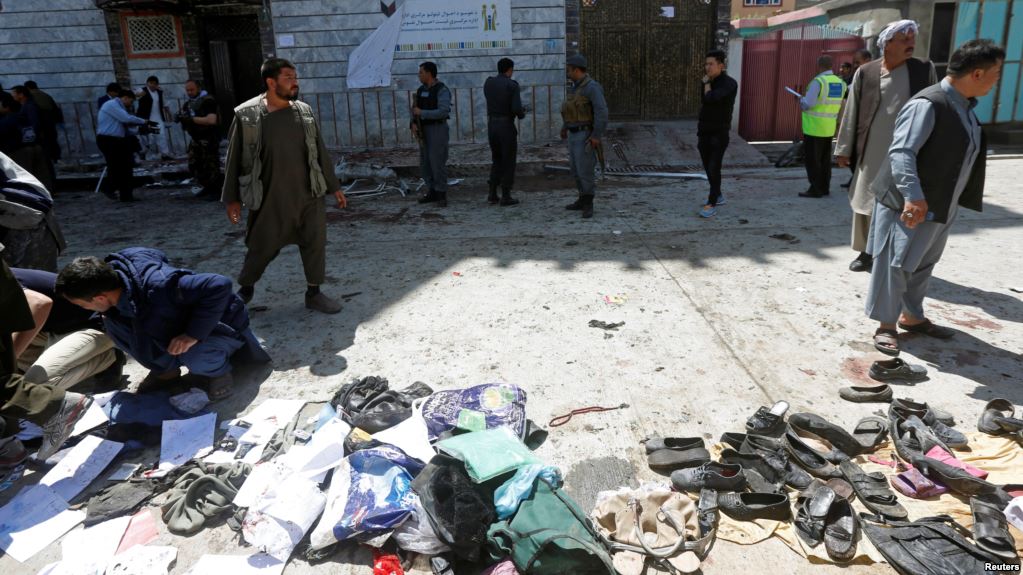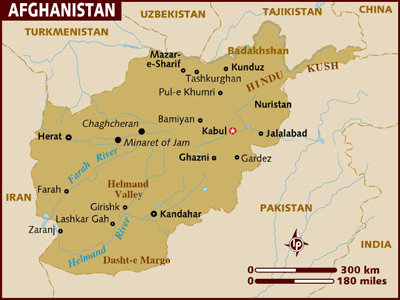Violence in Afghanistan
April 23, 2018 | Expert Insights

There have been bombings at voter registration centres in both Kabul and Baghlan in Afghanistan. The attack has resulted in the deaths of at least 63 people and has wounded a hundred more.
The Parliamentary election in Afghanistan is slated to take place in October 2018.
Background
Landlocked and mountainous, Afghanistan is one of the most unstable nations in the world. Much of its economy and its infrastructure are in ruins and the nation relies heavily on foreign aid. The region is home to multiple terror groups such as ISIS, Taliban, al Qaeda and Daesh.
This chronic instability has forced many citizens to become refugees. The region is plagued by multiple terror attacks. In 2016, 4,561 people were killed by terrorists in Afghanistan. There were 1,340 terrorist attacks that year alone.
The number of terror attacks have continued to rise in recent years. Vanda Felbab-Brown, an expert in the field, testified to the Subcommittee on Terrorism, Non-proliferation, & Trade of the House Foreign Affairs Committee, that there has been a resurgence of terrorism in the country. Nicholas Haysom, the U.N. special envoy in Afghanistan noted in March 2016 that if Afghanistan merely survived 2016, the UN would consider its mission a success. In addition, war continues to rage on the region. The US-led invasion, which took place in 2001, has still not ended, and thus is the longest war waged in American history.
This chronic instability has forced many citizens to become refugees. The region is plagued by multiple terror attacks. Kabul is regularly shaken by suicide bomb attacks. Within the first half of 2017, reports have suggested that terror attacks had resulted in the deaths of at least 1,662 people. In January 2018, an ambulance packed with explosives killed at least 100 people.
ISIS
The Islamic State of Iraq and the Levant also known as ISIL and ISIS that is considered a Salafi jihadist militant group and unrecognized proto-state that follows a fundamentalist, Wahhabi doctrine of Sunni Islam. It gained global prominence in early 2014 when it drove Iraqi government forces out of key cities in its Western Iraq offensive, followed by its capture of Mosul and the Sinjar massacre. Since 2017, it has lost most of the land it had claimed.

Analysis
In the first two months of 2018, the terror attacks in Afghanistan by the Taliban increased exponentially. On 29th January 2018, explosions and gunfire erupted near the main military academy in Kabul, as officials and witnesses feared insurgents had entered another heavily guarded compound. In the same month, an ambulance packed with explosives killed at least 100 people. The Taliban took responsibility for the attacks.
In April 2018, a suicide bomb attack in Kabul, the capital of Afghanistan, has resulted in the deaths of at least 57 people. In addition, there was another bombing at Baghlan, resulting in the deaths of at least 6 people. Both the bombings occurred at places where voter registration was taking place. At least a hundred people were injured. The elections are slated to take place in October 2018.
"I found myself covered in blood, with dead people - women and children - around me," Rasuli, 26, recalled when he spoke to AFP news agency from his hospital bed in the city. "After I heard a bang, I rushed to the site of the blast and, when I arrived at the scene, we helped many wounded people by carrying them to hospital," Bashir Ahmad, a witness, said. "Many of the victims were women and children who were here to get their identity cards and register for elections," he added.
An official from the ministry has noted that five children and 21 women were among those who were killed. The death toll is expected to rise. Taliban, the group that generally takes responsibility for similar attacks, has denied it was involved in the suicide bombing. The Islamic State group (IS) said it had carried out the attack. No other group has taken responsibility for the attack in Baghlan.
The attack comes just weeks after Afghan President Ashraf Ghani put forth an extraordinary offer to bring peace to the region. He said that he would move to officially recognize the Taliban as a legitimate political group in the region. He also asked the group to come to the negotiating table with any “precondition”. The group, meanwhile, has noted that it wants to directly negotiate with the US administration.
Political instability in Afghanistan
Afghanistan’s politics have always been beset with instability. In December 2017, Jamayat-E-Islami, one of the main political parties’ part of the Afghanistan government, threatened to withdraw its support from the government. They have called on the President to reverse his decision to dismiss Atta Noor, one of the most powerful governors in the country. This further increased tension in the region.
Assessment
Our assessment is that by orchestrating an attack in voter registration booths, the perpetrators of the bombings have attacked the region’s democratic systems. Even as Taliban has offered to negotiate a peace agreement with the US, ISIS remains a potent opposition not only to the survival of the democratic system in Afghanistan, but also to regional and international security. We believe that there are likely to be more violent attacks in the region leading up to the elections. This, in turn, would affect the legitimacy of the elections.
Read more: Taliban’s legitimacy in Afghanistan
Political instability in Afghanistan








Comments